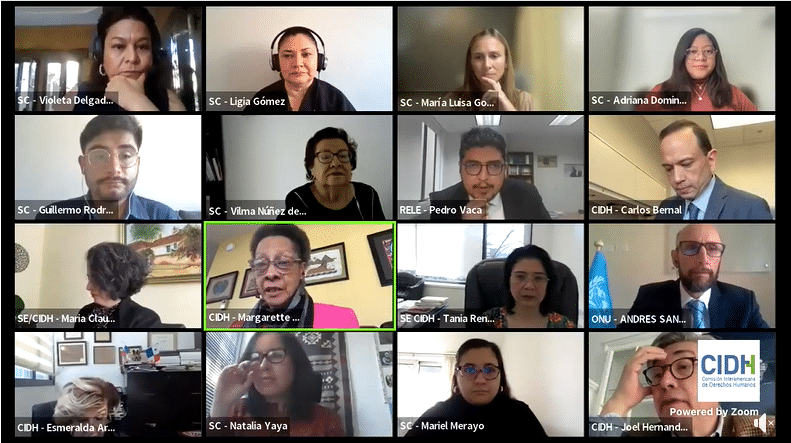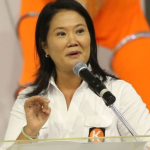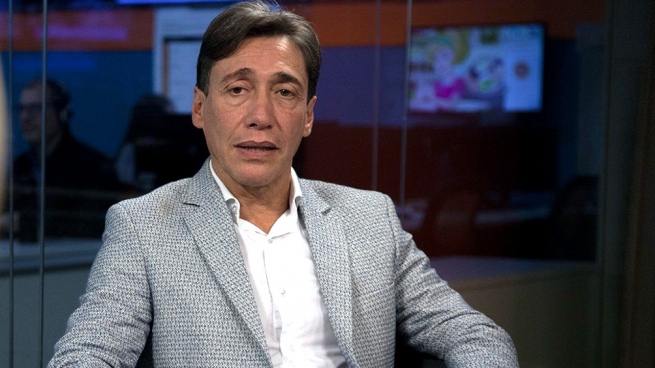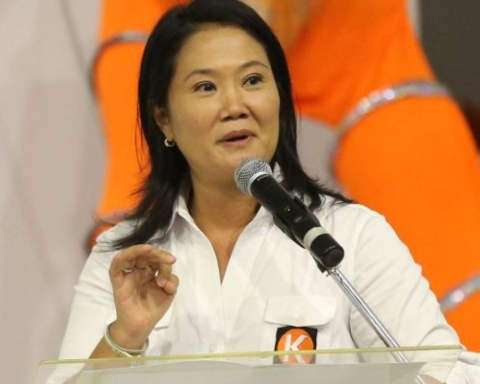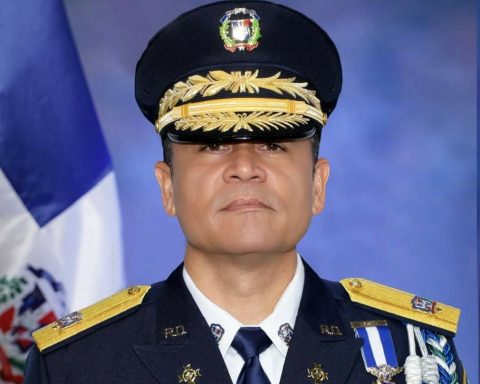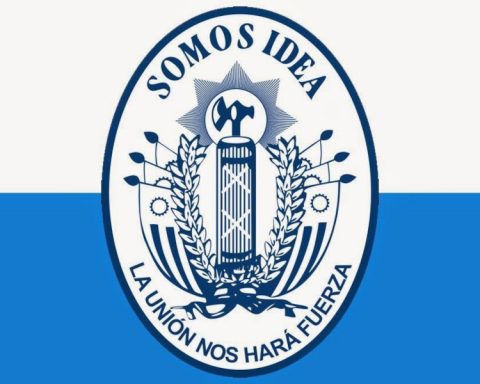A group of national and international human rights organizations denounced that “structural impunity is absolute” in Nicaragua and has left “very serious consequences in the human rights situation of Nicaraguans”, in a public hearing, this March 14, during the 189th session of the Inter-American Commission on Human Rights (IACHR).
“Impunity has been institutionalized because human rights violations do not stop occurring… It is a situation of accumulated impunity since 2018 and there has not been a single moment where human rights violations are not committed here,” denounced the lawyer Vilma Núñez, President of the Nicaraguan Center for Human Rights (Cenidh).
Civil society representatives stressed that their call, given the structural impunity imposed by the Ortega-Murillo regime in Nicaragua, is for the Commission and the other international protection mechanisms to “join and intensify their efforts to ensure that a independent and impartial investigation of the serious violations committed” since April 2018.
“We ask this Commission to maintain close coordination with the United Nations System, bring its expert voice closer and cooperate in the demand to promote the establishment of an international mechanism for investigation and verification of facts, which allows progress towards accountability. and punishment of those responsible”, highlighted María Gómez, from the Institute on Race, Equality and Human Rights (Race and Equality).
The other organizations that supported the request expressed by Race and Equality were: Cenidh, Center for Civil and Political Rights (CCPR), Center for Justice and International Law (CEJIL), Autonomous Women’s Movement (MAM), International Federation for Human Rights (FIDH), and Open Ballot Boxes.
“Serious absence of the State of Nicaragua”
The Nicaraguan State, despite being invited, again did not participate in the periods of public hearings of the IACHR. The rapporteur for Nicaragua, Esmeralda Arosemena, lamented the state’s absence and assured that as country rapporteur she has “insisted on the Nicaraguan State, its authorities, the opportunity to dialogue, to listen to them, but unfortunately we have not received a response.”
Rapporteur Joel Hernández, rapporteur for Human Mobility and Human Rights Defenders, pointed out that the absence of the State in the IACHR hearings is “long-standing” and has become “even more serious after the social outbreak of 2018.”
He explained that the seriousness of the State’s absence is especially “because we cannot start a dialogue if the State is not present in these conversations and because it implicitly implies the State’s denial of the reality that is being experienced in Nicaragua, which translates into the closure of any democratic space in Nicaragua, and this then prevents being able to reverse this situation.”
Arosemena stressed that, in this context of closing the space for dialogue with the State, the “extraordinary” measures requested by civil society, and “action plans that are established with a strategy of this regional vision, become even more important. also universal, from all the countries of the world”.
Andres Sanchez, deputy representative of the Regional Office for Central America and the Caribbean of the United Nations High Commissioner for Human Rights, who also participated as a guest in the audience, affirmed that as Oacnudh they have also denounced “the impunity in serious human rights violations committed since April 2018 in Nicaragua” and highlighted that the “accountability is the core of the rule of law”.
He also stressed that international law “has tools and mechanisms to prevent impunity from being imposed in cases of human rights violations,” indicating that in the case of Nicaragua there was -during the presentation of the report by High Commissioner Michelle Bachelet before the Council of the UN – numerous requests from states and civil society for progress in the establishment of such mechanisms.
Criminalization of dissent in Nicaragua
Human rights defenders denounced that there are more than 160 people detained in the country, who have been subjected to “mistreatment and acts that constitute torture” and that more than 40 of these have been sentenced, in the last two months, with some of the punitive laws approved by the Ortega-Murillo regime in the last two years, such as: the Special Cybercrime Law and Law 1055 or “Sovereignty Law”.
“The prisons have been filled by the institutional destruction that has led to the consolidation of an institutional regime. There is no rule of law or separation of powers and we live under a de facto state of exception,” said the president of Cenidh.
Violeta Delgado, from the Autonomous Women’s Movement (MAM), denounced that “the justice administration system has been key to the criminalization of political dissidence and the consolidation of structures that guarantee impunity.”
“Persecution for political reasons, which could well constitute a crime against humanity, has been entrenched through violations of due process, and guarantees of people arbitrarily detained and deprived of liberty, including the lack of publicity of the crimes. processes, the use of false witnesses and victims, the excessive and generalized use of preventive detention and more”, he detailed.
He also pointed out that the State of Nicaragua “has not complied with anything of the provisions of the Inter-American Court of Human Rights, which adopted protection measures in favor of persons deprived of their liberty for political reasons.”
He denounced that “the Nicaraguan authorities continue to deny regular and scheduled access to family visits, failing to comply with international standards and the country’s own internal law, and the lack of access to medicines and adequate treatments for health care continues.”
Likewise, they urged the Commission to “continue to demand that the State proceed with the immediate release of all the people who remain imprisoned for political reasons, the end of their criminalization, the repeal of the legal framework that allows their judicialization without any foundation, and the revocation of their convictions.”
Also that, while his release is proceeding, he “insists on his request to carry out an on-site visit to the country, to verify the situations in which the people imprisoned for political reasons are found” and demands “conditions of decent detention, timely medical attention and frequent contact, and through all available means, with legal representatives and relatives, especially in the case of the daughters and sons of persons deprived of liberty for political reasons.”
Punitive laws promote “impunity”
Nathalia Yaya, in charge of the Office Program of the Americas at the International Federation for Human Rights (FIDH), highlighted that The Ortega regime has also “enacted destructive laws, which seek to suffocate Nicaraguan civil society and reduce the space for public scrutiny.”
He denounced that since November 2018 the Ortega regime has outlawed, from the National Assembly where it is the majority, “at least 107 Nicaraguan NGOs”, leaving “serious impacts on the fight against impunity, as it consolidates the strategy of extinction of organizations capable of to map human rights violations, serve the victims, propose a mechanism for the respect and protection of rights, and activate mechanisms for their guarantees.”
“We are deeply concerned that these criminalization instruments are being sought to deepen, since since February 12 the National Assembly announced a process of review and consultation of criminal law,” warned Yaya.
Given this situation, the group of organizations requested that the Commission demand that the State of Nicaragua “restore the legal personality of the canceled associations, as well as the return of their assets” and respect the work of the non-profit organizations that continue to work for the well-being of Nicaraguans.
Additionally, they requested that the IACHR “issue a joint statement on the scope of the situation of structural impunity in the country and the need to advance to accountability processes at the international level; expedite the cases that are currently being processed under your knowledge, to contribute to the processes of access to justice and reparation in the country; and ask the Inter-American Court for an advisory opinion on the standards that states and their institutions must meet to face situations of impunity.”
